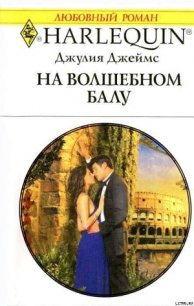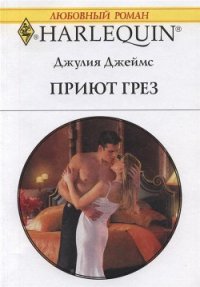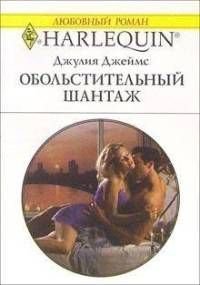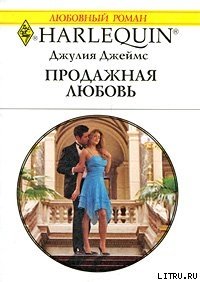Julia Ward Howe - Richards Laura E. (бесплатная регистрация книга TXT) 📗
At long last, when June was nearly half over, the money came, and with it the end of her long task. Accounts were audited, checks drawn, exhibits despatched; and with farewell greetings and congratulations, "the whole weary matter ended." Her report as President of the Woman's Department tells the story:
"The business of the Woman's Department having thus been brought successfully to a close, it only remains for its President to resign the office she has filled, with some pain and much pleasure, for more than six months,—to thank the officers of her staff for their able and faithful services, the vice-presidents, and the lady commissioners in general, for the friendly support she has had from them almost without exception....
"The classification by States she considers to have justified itself, partly through the more distinct knowledge thus gained of the work of women in localities widely distant from each other, partly in the good acquaintance and good-will developed by this method of work. The friendly relations growing out of it still bind together those who are now thousands of miles apart, but who, we may hope, will ever remain united in a common zeal for promoting the industrial interests of women.
"Finally, she would say that she considers herself happy in having taken part in an Exposition of so high and useful a character as that which has latterly made New Orleans a centre of interest in the civilized world. She takes leave with regret of a city in which she has enjoyed much friendly intercourse and hospitality; a city in whose renewed prosperity she must henceforth feel a deep and lasting interest."
To Laura
Oak Glen, July 19, 1885.
How I left New Orleans, how I came North, how I let myself down here, is no doubt known to you thro' inference. How hot New Orleans was before I left it, you cannot know, nor how sick I was once upon a time, nor how I came up upon iced champagne and recovered myself, and became strong again. Ever since I came home, I have slaved at my report of the Woman's Department. Weary pages have I written. Life seems at last to consist in putting a pen into an inkstand, and taking it out again, scribble, scribble, nibble, nibble (meal-times), and go to bed between whiles....
So ended one of the most interesting and arduous experiences of her life. She always held in affectionate remembrance the city where she had enjoyed and suffered so much, and the friends she made there.
To Laura
Oak Glen, November 4, 1885.
You little hateful thing!
Herewith returned is the letter you wrote for. I had a mind to send it to you, beast that you are, without one word, just to pay you for that postal. Of course, I meant to write you immediately afterward in a separate envelope, telling you that I still love you. But there! I reflected that you could have a bad feeling if you opened the envelope and found no greeting from me. For the sake of posterity, Madam, I declined to give you this bad feeling. I do also retain some proprietorship in a certain pair of eyes which are like Sapphira's. Oh! I mean sapphires, and I don't want to dim them with any tear diamonds. "You flatter yourself," replies the Good-Natured One,[96] "to think of my shedding tears about anything that you could say or do, or leave unsaid or undone." Just so. All right. I have got beefsteak for dinner to-day. What do you think of the weather, and does your husband know when your blacking is out?
Now, my sweet darling, your old Mammy is just back from a tremendous jaunt. I had a beautiful time in Iowa, and am as well as possible. Only think, travelling and at work for one calendar month, and not a finger ache, 'cept one day, when I had a slight headache. And I brought home over $200 earned by lectures....
To the same
The Berkeley Nuisance,[97] New York,
December 26, 1885.
... What have I been doing for the last eight weeks? Never you mind, my little dear. Mostly putting a girdle round the earth by correspondence, and some-ly worrying about my poor relations. Don't you flatter yourself that I ever thought of you under this head. But the ——, and the ——, and the ——, taken together, are enough to give one a turn at the worry-cat system. Well 'm, I had also to see the distribution of the whole edition of my New Orleans Report, and I can only compare this to the process of taking down a house, and of sending each individual brick somewhere, labelled with your compliments; supposing the bricks to be one thousand in number, it would take some time to distribute them, Harry Richards will be able to tell you how much time, and how many masculine oaths would go to each hundred of the articles. Well, that's enough about that. You have had one of my bricks sent you, and hang me if I believe you have read it. Sweetison (a new little 'spression which I have this minute invented), I stayed at Oak Glen until Monday last, which was the 21st. Then I came here by the way of Boston, and arrove on Tuesday evening. Our quarters, or rather eighths, are small, considering my papers and Maud's clothes. The food is fine, the style first-rate, the rigs imposing to a degree, but, ah! I kind of hate it all. New York is too frightfully dirty! and then so stereotyped and commonplace. Boston losing its prestige? Not as I am at present advised....
CHAPTER V
MORE CHANGES
1886-1888; aet. 67-69
GIULIA ROMANA ANAGNOS
Giulia Romana! how thy trembling beauty,
That oft would shudder at one breath of praise,
Comes back to me! before the trump of duty
Had marshalled thee in life's laborious ways.
We used to wonder at thy blush in hearing
Thy parents praised. We now know what it meant:
A consciousness of their gifts reappearing
Perchance in thine—to consummation blent.
Oh, she was beautiful, beyond all magic
Of sculptor's hand, or pencil to portray!
Something angelical, divinely tragic,
Tempered the smile that round her lips would play.
Dear first-born daughter of a hero's heart!
Pass to perfection, all but perfect here!
We weep not much, remembering where thou art,
Yet, child of Poesy! receive a tear.
T. W. Parsons
The years 1886 and 1887 were marked by two events which changed materially the course of her private life: the death of Julia, the beloved eldest daughter, and the marriage of Maud, the house-mate and comrade.
During the winter of 1885-86 she made her headquarters in New York. Lecture engagements, conferences, and sermons took her hither and thither, and much of the time that should have been "precious" was passed in trains and boats.
In the last days of February, Julia was stricken with rheumatic fever, which soon developed into typhoid. The weather was "direful: bitter cold and furious wind." Our mother went at once to South Boston, where "arriving, found my dear child seriously but not dangerously ill. Her joy at my coming was very pathetic."




